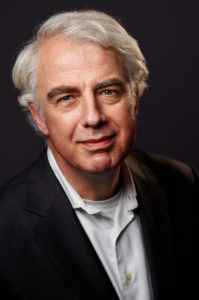About EARS: Understanding The Dynamics Of Religion
Stichting European Academy on Religion and Society (EARS) is a European network of Departments and/or Faculties of Religious Studies and/or Theology. The participating universities and their scholars of religion and theology cooperate at different levels, seeking to make their knowledge visible to society and relevant for the public domain.
A perspective on religion
Religious phenomena affect all areas in our contemporary society to various extents. EARS aims to describe, interpret, and explain those social issues. Therefore, its approach incorporates perspectives from religious studies, theology, sociology, psychology, and further relevant academic disciplines. This multiperspective approach focuses on subjects such as religious normativity, mechanisms of inclusion and exclusion, secularisation, religious attitudes towards gender and identity, etc. In this regard, EARS realises that sometimes raising questions is more important than finding answers. Hence, EARS intends to raise the big questions, rephrase and reframe them, and bring them to the fore.
Background
EARS has no background in any religion or denomination. Although the members mostly have their origins within the Christian tradition, they address religion from an objective and nonreligious standpoint. Hence, their religious origins do not play a role in their work for EARS. EARS addresses religion as a sociological, psychological, anthropological, confessional, and cultural phenomenon. If one wants to understand a society, one needs to look at the religious practices present within that society. EARS looks at the practices of everyday lived religion within the different European societies and seeks to tell the complex story of the dynamics of religion. These dynamics touch on many societal issues. Therefore, understanding them is not only an academic matter, but definitely also a societal one.
Availability of knowledge
The need to understand the complexity of religious developments is increasingly important. This is why EARS, the participating universities, and their scholars cooperate at different levels, aiming to make knowledge available and applicable to society at large. Within the debate on religion, EARS strives to seek nuance rather than further polarise the debate. EARS contributes, from its own narrative, to the debate on values, societal cohesion, and the challenges and impact of religion. It acts both as a think tank and as a hub for society. Our insights on topics such as leadership, social dilemmas, politics, technology, and education aim to inspire and to motivate.
General information about EARS
Stichting European Academy on Religion and Society (EARS) aims to foster collaboration between Faculties and Departments of Theology and/or Religious Studies, and to make their knowledge visible to society. We do so by sharing insights and inspiring knowledge via the EARS dashboard, the EARS website, our monthly newsletter, publications such as dossiers and whitepapers, conferences, and round tables with our network. Our most recent annual report with an overview of all activities is available here.
Funding: EARS is supported by private funds from the Netherlands. The capital is fully used for the above-mentioned activities. EARS’ fiscal number is 8558.00.847.
Board of Directors: the EARS Board of Directors consists of prof. dr. W. Janse (Chair), ds. J. Haeck (Secretary), and Prof. M.A. Smalbrugge (Treasurer). No remuneration is awarded to directors, nor to the board for whom this is part of the work within their regular position.
ANBI form: the required ANBI form is available here.

“Why do I consider EARS to be something very precious and highly relevant? Consider this: theology and religious studies try to understand the dynamics of religion in past and present times. That is why many of our faculties/departments still play an important role in the education of the future clergy. Yet, our society asks us to consider new, unexpected and urgent questions about religion. Dealing with these pressing questions, that in general have very little to do with the traditional confessional outlook of theology, obliges us to look for new ways of contributing to society. Ours is also the task to contribute to the discussions on topics such as gender, artificial intelligence, security, genetic engineering or the crisis of democracy.
All these issues can only be dealt with at a European scale and in all these debates, faculties and departments of theology and religious studies should be far more visible than they actually are. Dealing with societal issues, looking for a new legitimization of our discipline, making our knowledge available to the whole of society and playing a serious role in the debates of the future shape of humanity, that why I think EARS is a crucial network for scholars in the domain of religious studies and theology.”